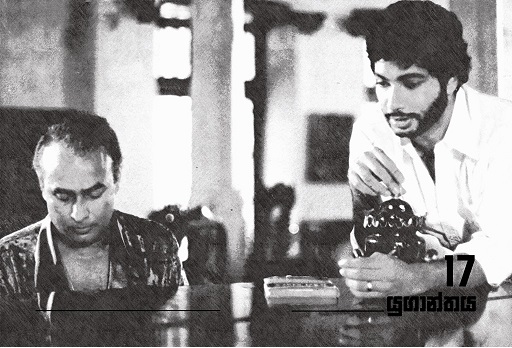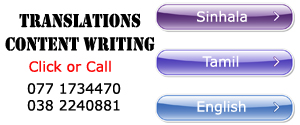Why did they kill Richard de Zoysa?
Ajith Perakum Jayasinghe
Richard de Zoysa, a journalist, actor, TV anchor and political activist, was abducted and assassinated 29 years ago in February 1990.
In the midnight on 18th February 1990, a group of civilian clad persons forcibly entered the house in Welikadawatta of Dr. Manorani Saravanamuttu, the mother of Richard de Zoysa, and abducted him in a vehicle. His tortured dead body was washed on the shore at Koralawella, Moratuwa on 20th Februrary.
Read this article in Sinhala >>>
Manorani, who confronted the leader of the team of abductors before the abduction, saw the man’s face on television screen few months later and identified the criminal as Senior Superintendent of Police Ronnie Gunasinghe. He was later killed together with the President Ranasinghe Premadasa on 1st May 1993 by a suicide bomber of the Liberation Tigers of Tamil Ealam (LTTE).
No one was penalized for the assassination of Richard de Zoysa although there was a number of eyewitnesses for the abduction.
The reason for the assassination of this man who hailed from the elite society of Sri Lanka is still unknown. Many people still allude a drama produced by him criticizing the then regime was the reason for killing him. But it is far from logical thinking that state might allow the assassination of such high profile person who was also the Sri Lankan correspondent of Internews international news agency for such a minor reason. English drama in Sri Lanka can cause almost no impact on the thinking of the majority of the people of Sri Lanka.
After year 2000, the writer of this article met a close friend of Richard de Zoysa who had helped him to translate Rohana Wijeweera’s controversial book ‘What is the Solution for the Tamil Ealam Problem?’ into English. However, the other persons who involved in this task later identified the shortcomings and subtle maneuvering of Marxism in Wijeweera’s philosophy and turned away from JVP. They became associates of Hiru Group later times. Hiru Group split from JVP in late 1990s differentiating them from the line of the JVP on the ethnic issue.
JVP-owned public newspaper ‘Lanka’ of 17 February 2019 published an article by a writer called Piyasiri Rathnayaka. He says that he had close association with Richard de Zoysa and argues that the assassination was not merely because de Zoysa was a journalist. He declares that he and the other JVP activists were arranged safe havens by Richard de Zoysa. He insists that Richard de Zoysa politically stood with JVP even though the party fought for the liberation of a class to which he did not actually belong. Piyasiri ascertains that Richard provided the JVP activists with food, lodging and financial assistance.
After all, what can be the reason for the killing of Richard de Zoysa? Based on the contextual knowledge I have on the period, I suspect there could be a high profile betrayal. The time of Richard’s assassination was a time of extreme treachery by arrested JVP leaders. First and second levels of JVP leaders had already been annihilated by then. An assassination attempt of a high profile politician was also being investigated. About eight months ago, JVP had assassinated another TV anchor of Sinhala language, Premakeerthi de Alwis who worked for the same state owned Sri Lanka Rupavahini Corporation where Richard worked.
In the context, the article published on the JVP newspaper rejects the popular opinion that Richard was killed because he was a journalist and also in the backdrop of the same article pointing out that he had also surpassed the sheer human rights boundaries, it is yet to be revealed the depth of his engagement with the JVP. Whatever it is, it can be the reason for the government so abruptly killing him. Although the lead abductor Ronnie Gunasinghe died in the Armour Street suicide bomb by LTTE, still there are persons who engaged in the abduction as well as in politics with him.
Similarly, I believe that the journalists like Dharmarathnam Sivaram, Lasantha Wickramathunga and Prageeth Ekneligoda were killed not merely because they were journalists but they were political threats to the government. However, no authority has right to do such summary killings of their opponents.
Cover picture: Richard de Zoysa in Yuganthaya movie directed by Lester James Pieris which was based on the Martin Wickramasinghe’s novel.



